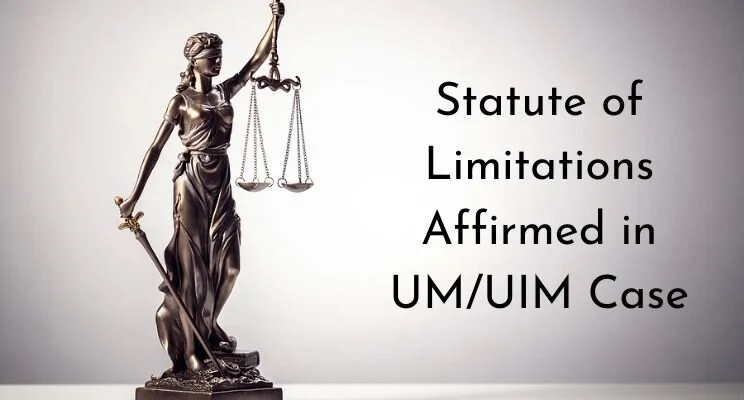Uninsured vehicle occupants, pedestrians, and bicyclists who were injured in auto accidents between June 11, 2019 and July 2, 2020 will now receive unlimited Personal Injury Protection (PIP) medical coverage.
Read MoreThe Michigan Supreme Court ruled that “when a paying insurer has at least an arguable duty to pay benefits under the no-fault act, the insurer is simply protecting its own interests and not acting as a volunteer, and it may invoke the doctrine of equitable subrogation to recover any benefits paid erroneously.”
Read MoreMichigan’s auto insurance reform has created many options for Michigan drivers. Every auto insurance policy providing statutory coverage in Michigan includes four types of Personal Injury Protection (PIP) benefits.
Read MorePlaintiff was an injured driver in an October 2, 2016 motor vehicle accident in which the driver of the other vehicle was unknown. The plaintiff’s insurance policy with defendant insurance company included a provision for uninsured/underinsured (UM/UIM) motorist coverage.
Read MoreInsured driver was injured in an auto accident on New Year’s Eve, 2017. He received medical treatment for his injuries from plaintiff-appellant on several occasions between March and November of 2018. An Assignment of Benefits was executed by the injured driver for each service appointment.
Read MoreThis first-party, no-fault action for PIP benefits involved, in part, a material question of fact regarding plaintiff’s supposed acceptance of the policy recission.
Read MoreMichigan HB 5125 allows medical treatment for catastrophic injuries sustained in an auto accident subject to personal injury protection (PIP) benefits, with the implementation date delayed until July 1, 2022.
Read MoreA notice of cancellation for a no-fault policy under MCL 500.3020(1)(b) must be “preemptory, explicit, and unconditional,” according to a recent Michigan Supreme Court ruling. In the case reviewed, the insurance company sent the cancellation notice before the premium was due.
Read More







